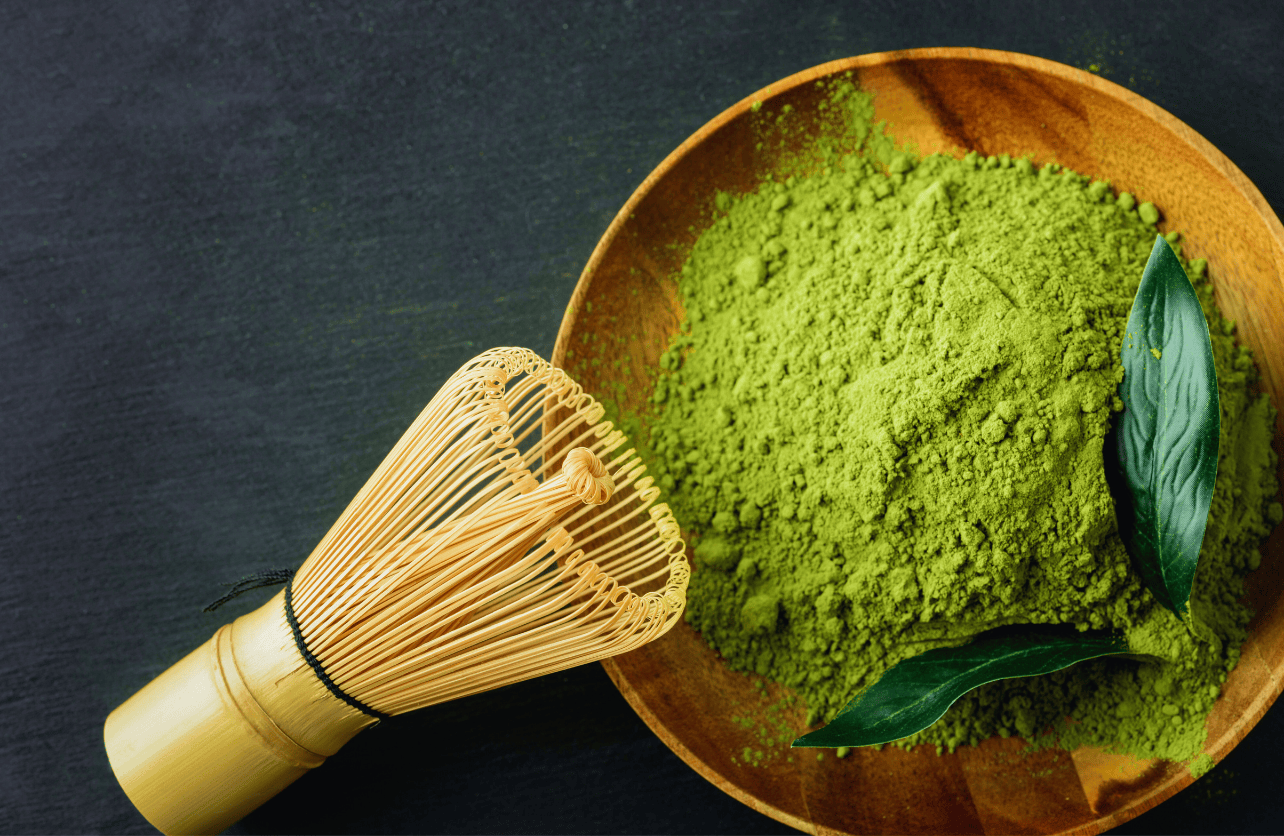Does Drinking Matcha Lower Blood Sugar?

Matcha, a finely ground powder made from specially grown green tea leaves, has surged in popularity worldwide for its vibrant color, unique flavor, and numerous health benefits. Among these benefits, one question frequently arises: “Does drinking matcha lower blood sugar?” Understanding the relationship between matcha consumption and blood sugar levels is crucial, especially for individuals managing diabetes or those looking to maintain stable energy levels throughout the day. This article delves into how matcha may influence blood sugar, the scientific evidence supporting these claims, practical tips for incorporation, and considerations to keep in mind.
What is Matcha?

Matcha is a type of green tea that originates from Japan. Unlike traditional green tea, where leaves are steeped and then discarded, matcha involves consuming the entire leaf in powdered form. This method of preparation results in a higher concentration of antioxidants, vitamins, and minerals compared to regular green tea.
Key Benefits of Matcha
- Rich in Antioxidants: Particularly catechins, which help combat free radicals.
- Boosts Metabolism: Can enhance fat burning and improve physical endurance.
- Enhances Mental Focus: Contains L-theanine, an amino acid that promotes relaxation without drowsiness.
- Supports Immune Health: Contains vitamins A and C, potassium, and iron.
Understanding Blood Sugar
Blood sugar, or blood glucose, is the main sugar found in your blood and the primary source of energy for your body’s cells. Maintaining stable blood sugar levels is essential for overall health. High blood sugar levels over time can lead to serious health issues, including type 2 diabetes, heart disease, and kidney problems.
Why Blood Sugar Matters
- Energy Levels: Stable blood sugar ensures consistent energy throughout the day.
- Weight Management: Fluctuating blood sugar can lead to increased hunger and overeating.
- Long-Term Health: Consistently high blood sugar levels increase the risk of chronic diseases.
How Might Matcha Influence Blood Sugar?
Several components in matcha may contribute to blood sugar regulation:
1. Catechins
Matcha is exceptionally high in catechins, particularly epigallocatechin gallate (EGCG). Catechins have been shown to improve insulin sensitivity and reduce blood sugar levels by enhancing glucose uptake by cells.
2. Fiber Content
Though present in smaller amounts compared to other sources, the fiber in matcha can slow the absorption of sugar into the bloodstream, preventing rapid spikes in blood glucose levels.
3. L-Theanine
This amino acid not only promotes relaxation but may also help modulate insulin secretion, aiding in more stable blood sugar levels.
4. Polyphenols
These compounds have antioxidant properties that reduce inflammation, a factor linked to insulin resistance and type 2 diabetes.
Scientific Evidence on Matcha and Blood Sugar
While matcha specifically is less studied than green tea in general, the components it contains have been extensively researched.
Studies Supporting Blood Sugar Reduction
- Green Tea and Insulin Sensitivity:
A study published in the American Journal of Clinical Nutrition found that green tea extract improved insulin sensitivity and reduced blood sugar levels in overweight and obese individuals. - Polyphenols and Diabetes Prevention:
Some research suggests that polyphenols in green tea, including those in matcha, may prevent type 2 diabetes by improving glucose tolerance and reducing insulin resistance.
Limitations of Current Research
- Matcha-Specific Studies:
Most studies focus on green tea extract rather than matcha itself. However, matcha contains higher concentrations of catechins and other beneficial compounds. - Long-Term Effects:
More long-term studies are needed to fully understand the impact of regular matcha consumption on blood sugar levels.
Practical Tips for Using Matcha to Manage Blood Sugar

If you’re considering incorporating matcha into your diet to help regulate blood sugar, here are some practical tips:
Start with Moderate Consumption
Begin with one cup of matcha per day and observe how your body responds. If well-tolerated, gradually increase to two to three cups.
Avoid Adding Sugars
To maximize blood sugar benefits, consume matcha without added sugars. Sweetening it with natural alternatives like stevia or blending it with unsweetened almond milk can be effective.
Pair Matcha with Protein or Healthy Fats
Combining matcha with protein or healthy fats can further stabilize blood sugar levels by slowing down the absorption of carbohydrates.
Consistency is Key
Regular consumption is essential for experiencing the potential blood sugar-regulating benefits of matcha.
Monitor Your Blood Sugar
For individuals with diabetes or those on blood sugar-lowering medications, it’s crucial to monitor blood sugar levels regularly to avoid hypoglycemia (dangerously low blood sugar).
Potential Risks and Considerations
While matcha is generally safe for most people, there are some considerations to keep in mind:
Caffeine Content
Matcha contains caffeine, which can affect individuals sensitive to stimulants. High caffeine intake may lead to insomnia, jitteriness, or increased heart rate.
Liver Health
Excessive consumption of green tea extracts has been linked to liver toxicity in rare cases. Stick to recommended dosages and consult with a healthcare provider if you have pre-existing liver conditions.
Interactions with Medications
Matcha may interact with certain medications, including blood thinners and stimulants. Always consult with a healthcare professional before adding matcha supplements to your regimen.
Quality of Matcha
Opt for high-quality, organic matcha to avoid contaminants like heavy metals and pesticides, which can pose health risks.
Wrapping Up
Drinking matcha may offer benefits for lowering blood sugar levels, thanks to its rich content of catechins, polyphenols, and other bioactive compounds that enhance insulin sensitivity and glucose metabolism. While existing research on matcha specifically is limited, studies on green tea and its components provide promising insights. Incorporating matcha into a balanced diet, combined with other healthy lifestyle choices, could support blood sugar management and overall well-being.
However, it’s essential to approach matcha consumption mindfully, considering factors like caffeine sensitivity, potential interactions with medications, and the quality of the matcha powder. As always, individuals with existing health conditions or those taking medications should consult with a healthcare provider before making significant changes to their diet or supplement routine.
FAQs
Can I drink matcha daily to help control my blood sugar?
Yes, incorporating matcha into your daily routine may help in managing blood sugar levels, especially when combined with a balanced diet and regular exercise. However, moderation is key to avoid excessive caffeine intake.
How much matcha should I drink to see blood sugar benefits?
Starting with one to two cups per day is advisable. Individual responses may vary, so it’s important to monitor your body’s reaction and consult with a healthcare professional.
Are there specific times of day when matcha is more effective for blood sugar management?
Consuming matcha in the morning or before meals can help stabilize blood sugar levels throughout the day. Some also find benefit in having it before workouts to enhance glucose uptake by muscles.
Can matcha replace diabetes medications?
No, matcha should not replace prescribed diabetes medications. It can be used as a complementary approach alongside conventional treatments, but always consult with your healthcare provider before making any changes.
Is decaffeinated matcha effective for lowering blood sugar?
Decaffeinated matcha still contains catechins and other beneficial compounds that may aid in blood sugar management, though the absence of caffeine may slightly alter its effectiveness in certain aspects like energy and metabolism.
Building a Stronger You
Supplement Institute is the fruit of extensive online publishing experience, spanning the breadth of SEO strategies to the nuances of paid advertisements. Our journey, marked by significant achievements and learning moments, inspires our core mission: to empower our readers with an abundance of information. By sharing insights and key learnings, we aim to provide you with the knowledge needed to navigate the complex world of supplements, helping you make well-informed decisions for your health and well-being. Welcome to Supplement Institute, where information is your greatest supplement.